Are you a skilled cyber security expert looking for your next job? A fantastic opportunity has cropped up, and you know you have what it takes to get the job. Perhaps you’ve been working in other fields but are now ready to find something that gives your skills more purpose. Or maybe your dream job has always been to work in cyber security, and this is your way of making that happen! Whatever the case, landing the perfect role will require a little bit of savvy when it comes to putting together the perfect resume. We understand if you’re unsure where to begin or feel like your resume could use an update in general. After all, it’s one of the first things a hiring manager sees, and they probably won’t hesitate to throw yours in the trash if it looks like something from the nineties! This article will teach you everything you need to know about creating a cyber security resume.
Cyber Security Resume Example

Download This Cyber Security Resume as PDF
Security Architect Resume Example
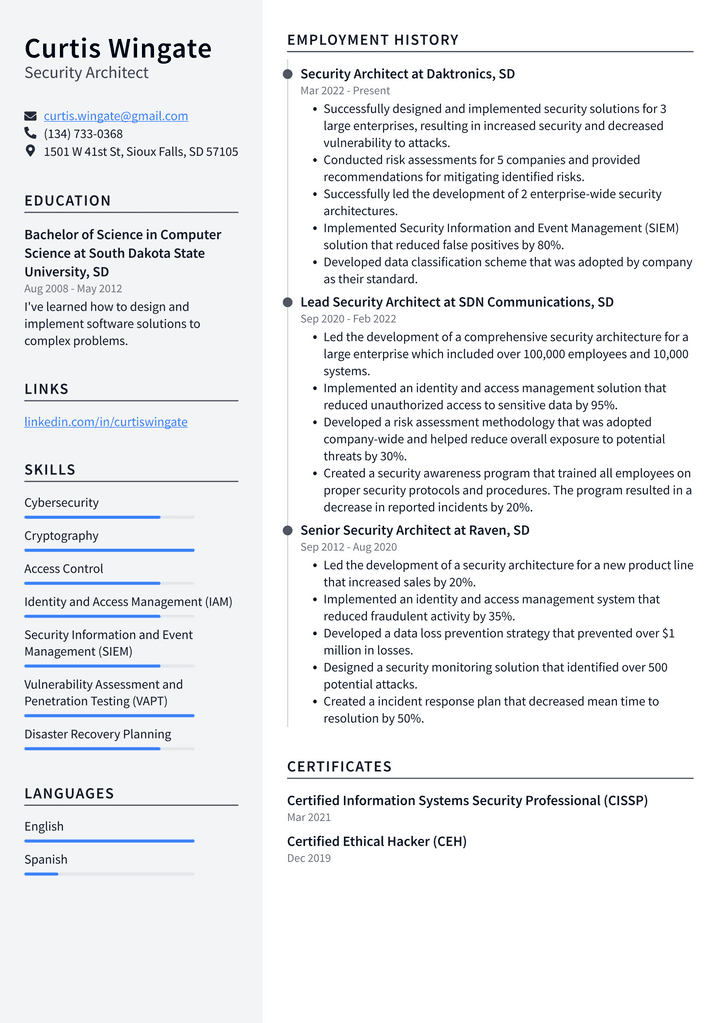
Download This Security Architect Resume as PDF
Security Specialist Resume Example
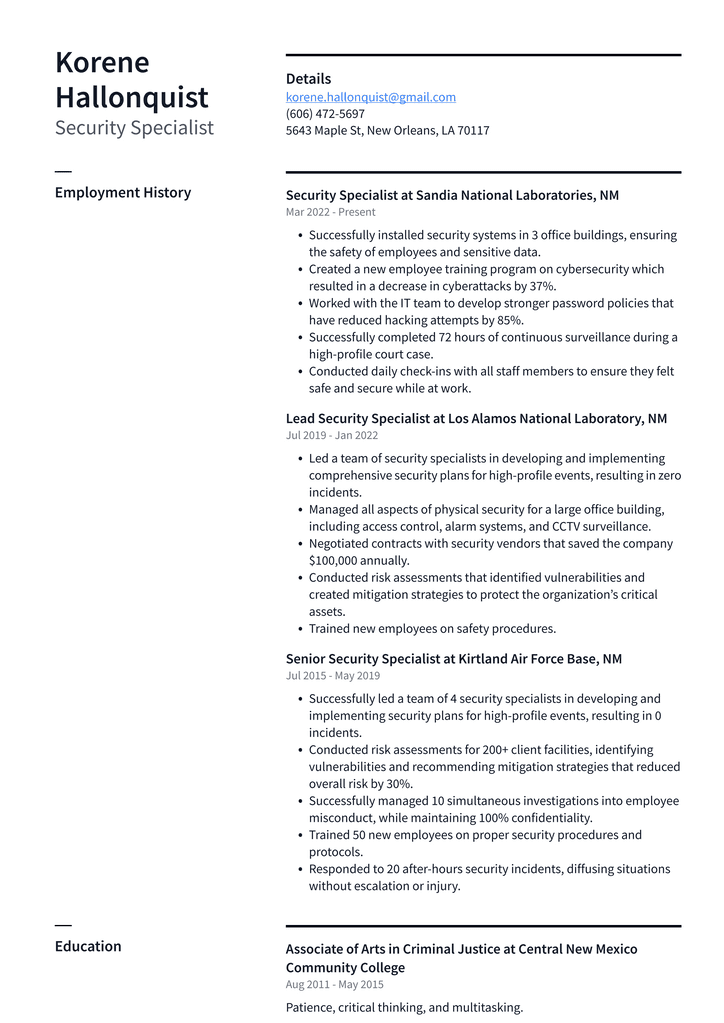
Download This Security Specialist Resume as PDF
Information Security Analyst Resume Example
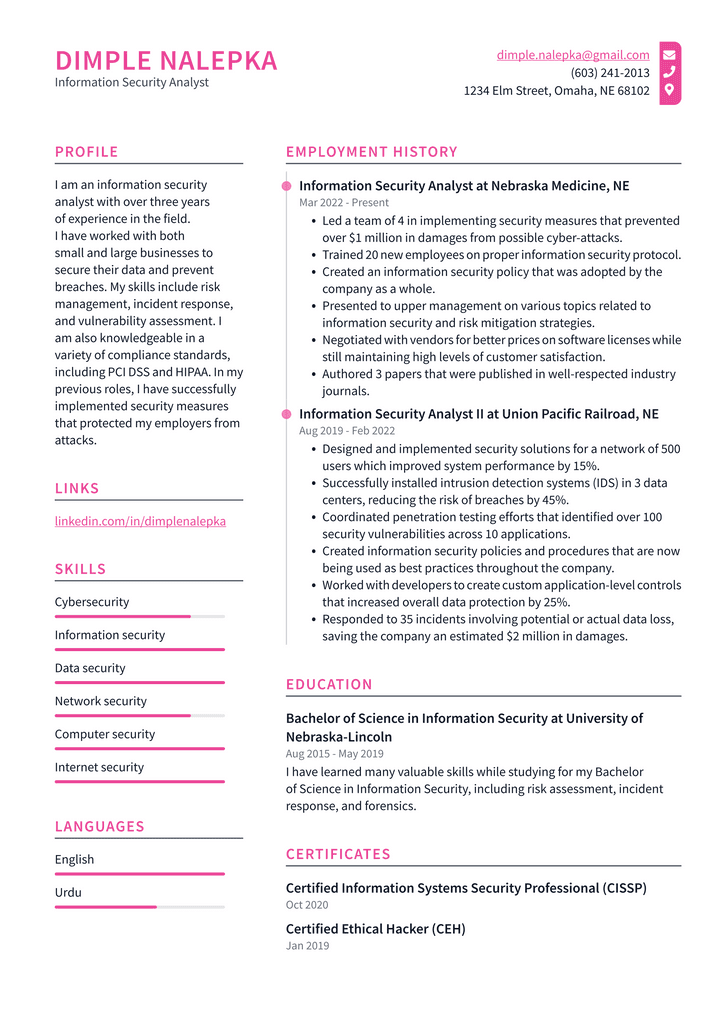
Download This Information Security Analyst Resume as PDF
Network Engineer Resume Example
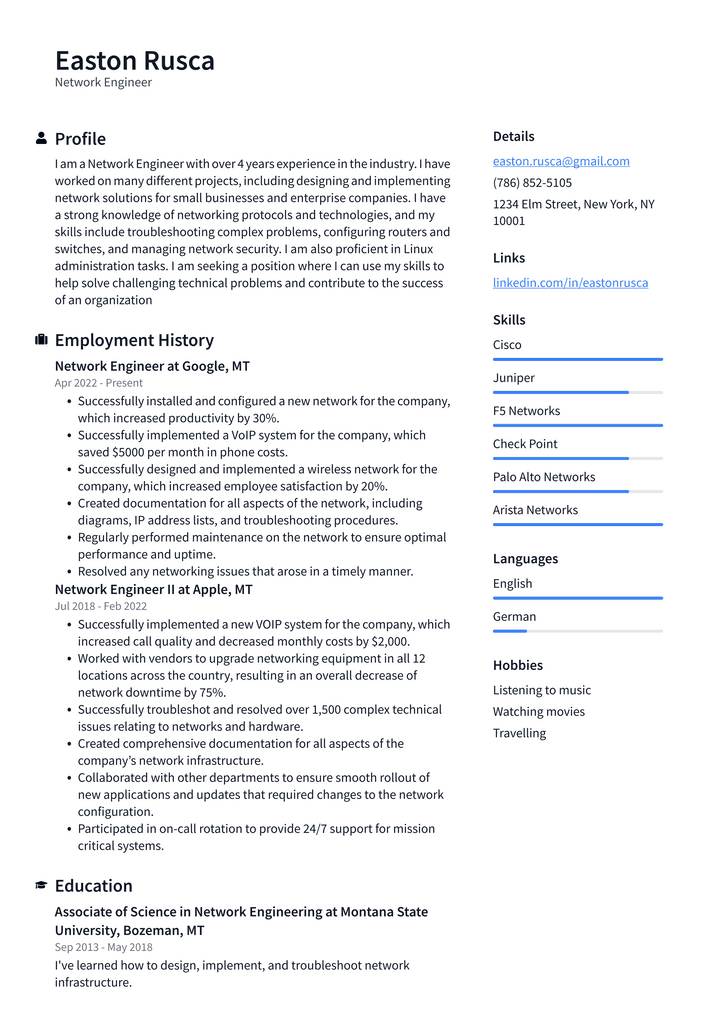
Download This Network Engineer Resume as PDF
Security Administrator Resume Example
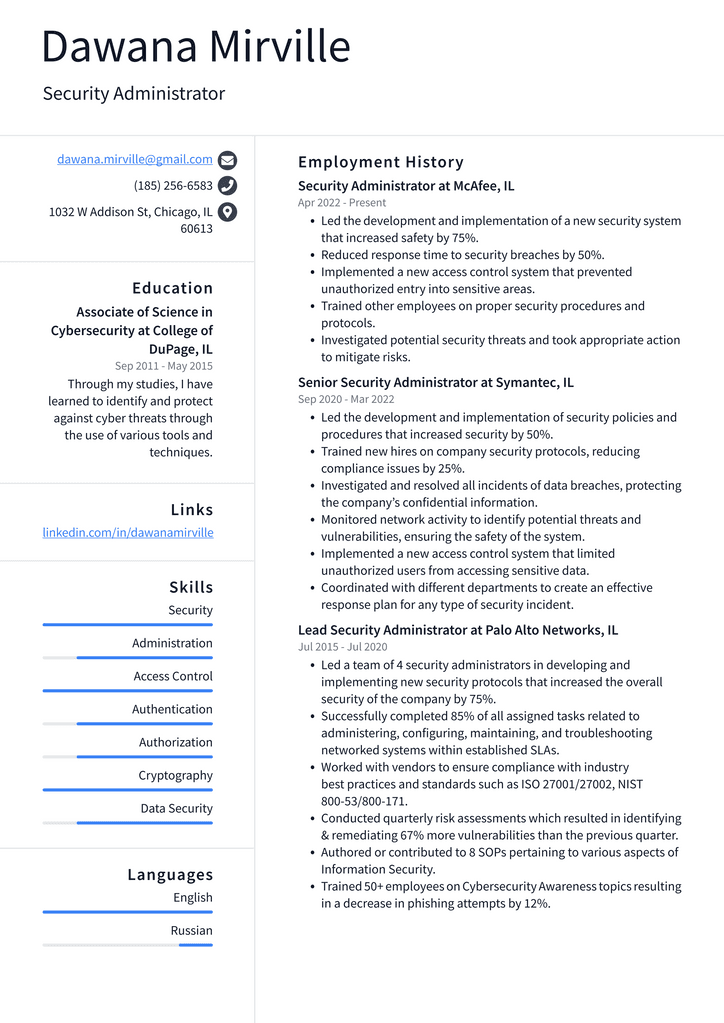
Download This Security Administrator Resume as PDF
Security Engineer Resume Example
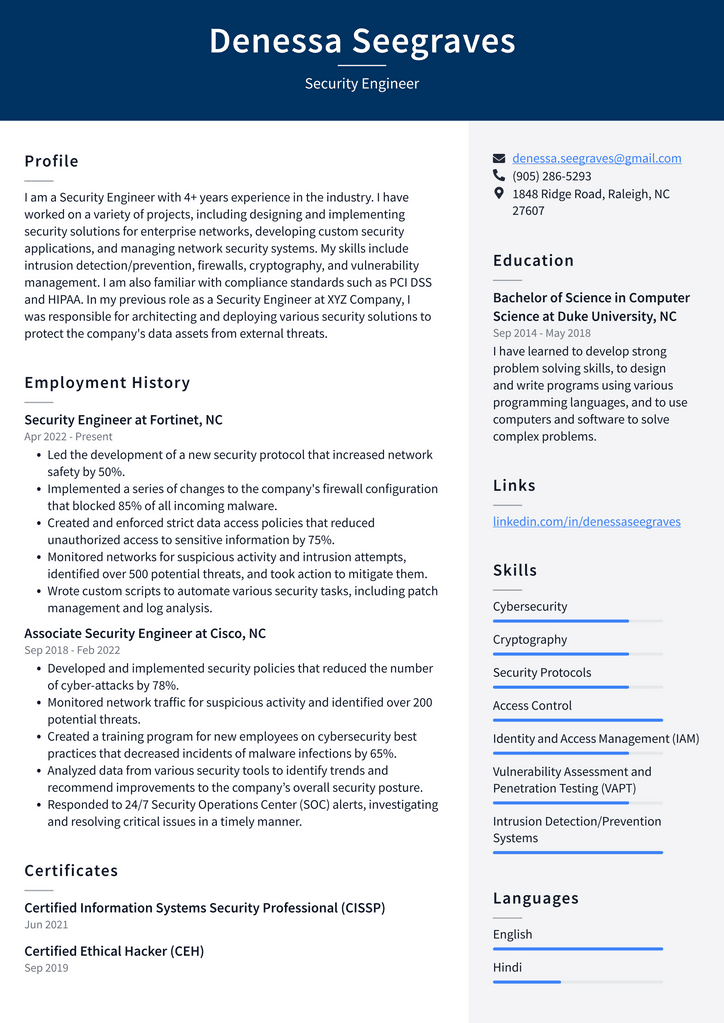
Download This Security Engineer Resume as PDF
What You Should Know About Resumes for Cyber Security Jobs
First and foremost, know that there are many types of resumes, each with its benefits. While plenty of general resume tips apply no matter what industry you work in, there are also many industry-specific tips and tricks. For example, a resume for a cyber security job will look very different from one for a retail job! It would help if you tailored your resume to each job you applied for. Employers are looking for people who are not only qualified for the job but also show that they are a good fit for the company. A good resume can help you to stand out positively. Your resume should focus on your experience, education, and skills. You don’t need to include information about your personal life, such as hobbies or marital status. It’s essential to ensure the resume is error-free and that you’ve included all the relevant details.
Build a Solid Resume to Land the Job
When you’re putting together a cyber security resume, you’ll want to structure it so that it shows off your skills and experience in the best light possible. The goal of your resume is to present a well-rounded picture of your skills and knowledge so that you can land the job you want. It’s important to note that there isn’t a one-size-fits-all resume format. You’ll want to ensure that you’re following the guidelines of the specific job boards or websites you’re applying to. It’s also a good idea to research specific resume formats that work well for your particular field. An effective resume will clarify why you’re qualified for the job. It’ll draw attention to your relevant skills and experience while showcasing your personality. On the other hand, a resume that is too dry, too gimmicky, or too long can be a real turn-off to hiring managers, so be sure to strike the right balance!
Find the Right Words to Describe Your Skills
Now that you’ve identified the skills and experience that are most relevant to your cyber security resume, it’s time to put those words onto paper. The first step is to list all the skills you have that are relevant to the job. Make sure that your list includes all relevant skills, even if they don’t seem like they’re essential to the job. It can be easy to forget to include the most important or relevant skills, so make sure your list is comprehensive! After you’ve made a list of all the skills, you want to include, select the top 5-10 items that best describe your experience and skills. Then, you’ll want to use those skills as keywords throughout your resume. Make sure you’ve used the exact words in the same order throughout the outline to be consistent.
Don’t Forget to Mention Key Skills and Tools.
Some of the most valuable skills in the cyber security field come from specific tools and software you’ve become accustomed to using. Be sure to include these in your resume! Tools that may be necessary include programming languages, software, and cryptocurrencies. If you’re applying for a job requiring you to use specific tools, you should also include them in your resume. For example, if you’re using a computer, you must know how to type correctly. Mistakes on your resume and typing skills are unprofessional and can cost you the job.
Add a Professional Summary
A professional summary is a great way to introduce yourself and your skills to hiring managers and potential companies. It’s a quick way to let employers know what you’ve accomplished and why you’d be an excellent fit. A professional summary can be placed near the top of your resume, just below your experience section. To write a practical professional summary, follow these steps: – Identify the skills that are most important for the job – Create a list of accomplishments that highlight your skills – Pick the top 3-5 items in this list – Write a summary statement that uses these skills to introduce yourself.
Add an Accomplishment or Task List
An accomplishment or task list is another way to show hiring managers how you’ve used your skills in the past. It’s a great way to show you’re experienced with various aspects of the job. It can also be a helpful tool for people new to the field or looking to break into a new sector. Make sure you’ve completed the tasks in a professional setting, as this will help show that you’re ready for the job. You can place an accomplishment or task list near the bottom of your resume. It’s a good idea to keep this list brief and to the point. Try to keep it to around five bullet points. Make sure that each bullet point includes a specific task or accomplishment.
Add Keywords That Are Important to Employers
Employers are less likely to find your resume if they cannot search for it. Search engines like Google can now read, and index resumes, but they aren’t able to pick up on keywords that aren’t written in a way they can understand. To ensure that your resume is visible to hiring managers, it’s essential to include the keywords employers look for when searching for candidates. You can find a list of common keywords used in cyber security jobs by visiting Indeed or typing “keywords for resumes” into Google. Make sure to include these keywords in your resume, including the skills they represent.
Try Out Different Resume Layouts and Styles
Different resume layouts and styles can help to highlight your skills and experience in new ways. There are many different resume styles out there, and the right one for you will depend on your taste, the type of job you’re applying for, and the amount of experience you have. When choosing a resume layout, it’s important to remember that you need to include all the information that a hiring manager would expect to see. This includes your contact information, education, past work experience, and skills. Therefore, ensure a resume layout containing all these essential details.
Conclusion
Whether you’re a seasoned professional or just starting in the cyber security industry, putting your best foot forward is essential. A strong resume and cover letter can help you stand out from other applicants and make a great first impression with hiring managers and potential employers. When you put together your resume, ensure to include the keywords that employers look for when hiring for cyber security jobs and the essential skills. An excellent summary can help you stand out from other job seekers and get one step closer to landing the position of your dreams.